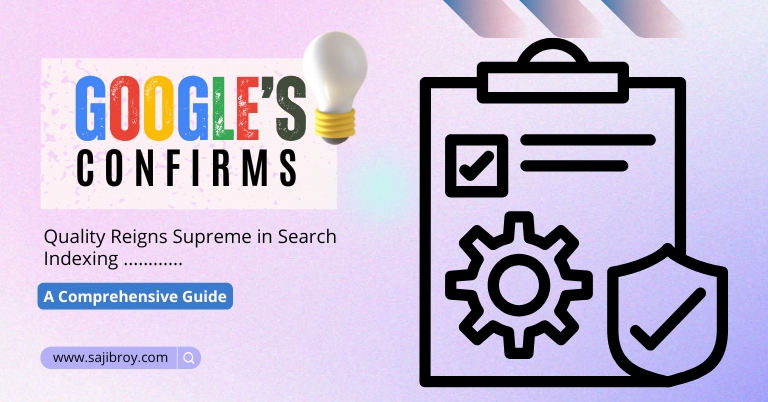To be a freelancer, you need marketable skills and the ability to secure clients independently. Being self-motivated and disciplined is crucial for f the rise of the gig economy has made freelancing an attractive option for many professionals.
Whether you want to escape the traditional 9-5 grind or seek more flexibility in your work life, freelancing offers a unique opportunity to be your own boss. However, being a successful freelancer requires more than just a desire for independence.
A crucial factor is honing the skills that are most in demand in today’s market: What are the Most In-Demand Skills for Freelancing? Fields such as digital marketing, graphic design, web development, content writing, and programming hold significant sway. These proficiencies not only attract potential clients but also showcase your ability to adapt to the ever-evolving industry landscape. By fostering a commitment to continuous learning and staying in sync with prevailing demands, you’re not only setting yourself up for success as a freelancer but also positioning for continual growth in this highly competitive realm.
It takes a combination of skills, mindset, and preparation to thrive in this competitive landscape. We will explore what it takes to be a freelancer and how you can set yourself up for success in this exciting and evolving field.
Let's See the Topic Overview
Understanding The Freelancer Lifestyle
Becoming a good freelancer requires dedication, self-discipline, and adaptability. It’s about being your own boss, managing your own time, and constantly learning and evolving in your field.
Being a freelancer offers a unique lifestyle that is often appealing to those seeking flexibility and independence in their careers. However, it’s essential to understand the pros and cons of freelancing, choose it as a career path, explore the different types of freelancing jobs, and debunk common misconceptions that surround freelancers.

Pros And Cons Of Freelancing:
- Freedom and flexibility: Freelancers have the freedom to choose their work hours, projects, and clients. This flexibility allows them to create a work-life balance that suits their needs.
- Increased earning potential: As a freelancer, you have the opportunity to set your rates and negotiate contracts directly with clients. This can lead to higher earning potential compared to traditional employment.
- Diverse projects and clients: Freelancers often work on a variety of projects and collaborate with clients from different industries. This provides the chance to gain diverse experience and expand their professional network.
Choosing Freelancing As A Career Path:
- Self-motivation and discipline: Freelancing requires self-discipline to manage your time effectively and stay motivated. Being able to work independently and meet deadlines without supervision is crucial.
- Financial considerations: Before choosing freelancing as a career, it’s important to assess the financial aspects, such as irregular income, taxes, and insurance. Building a savings cushion and proper financial planning is essential for a stable freelance career.
- Skill set and expertise: Evaluating your skills, expertise, and market demand is vital for success as a freelancer. Identifying your niche and honing your skills through continuous learning and professional development will help you stand out in the competitive freelance market.
Exploring Different Types Of Freelancing Jobs:
- Creative freelancing: This includes graphic design, web development, content writing, photography, and other artistic fields.
- Consulting and coaching: Freelancers with expertise in specific industries or niches can offer consulting services or provide coaching to individuals and businesses.
- Virtual assistance: Virtual assistants support businesses remotely by managing schedules, organizing data, and providing administrative support.
- Transcription and translation: Freelancers can provide transcription services, convert audio files into written documents, or work as translators to bridge language barriers.
Common Misconceptions About Freelancers:
- Unstable income: While freelance income may fluctuate initially, experienced freelancers can create a stable income by building a steady client base and maintaining long-term relationships.
- Lack of professionalism: Freelancers are professionals committed to delivering high-quality work and meeting client expectations. They understand the importance of professionalism and strive for excellence in their services.
- Isolation and loneliness: Although freelancers often work independently, they have various opportunities to network and collaborate with other professionals through online communities, co-working spaces, conferences, and industry events.
Understanding the freelancer lifestyle involves recognizing the pros and cons, making an informed decision about pursuing freelancing as a career, exploring different freelancing job options, and dispelling common misconceptions surrounding this career path. With the right mindset, skills, and determination, freelancing can offer a rewarding and fulfilling professional journey.
Essential Skills For Freelancers
Being a successful freelancer requires essential skills such as time management, self-discipline, effective communication, adaptability, and networking. These abilities allow freelancers to handle multiple projects, meet deadlines, build client relationships, and thrive in a competitive market.
Being a freelancer can be an exciting and rewarding career choice. It gives you the freedom to work on your own terms, explore your passions, and control your own destiny. However, to succeed as a freelancer, there are certain essential skills that you must possess.
In this blog post, we will explore the key skills that every freelancer should have.
Self-Motivation And Discipline:
- Ability to work independently and stay focused on tasks without direct supervision.
- Strong inner drive and determination to overcome challenges and complete assignments.
- Willingness to push through distractions and setbacks to meet deadlines.
- Self-discipline to allocate time effectively and avoid procrastination.
Time Management And Organization:
- Effective planning and prioritization of tasks to ensure efficient use of time.
- Ability to set realistic deadlines and meet them consistently.
- Proficient use of time management tools and techniques to stay organized.
- Skill in balancing multiple projects and meeting various clients’ needs.
Communication And Negotiation Skills:
- Excellent written and verbal communication skills to interact with clients and colleagues.
- Ability to express ideas clearly, concisely, and professionally.
- Active listening skills to understand client requirements and deliver satisfactory results.
- Strong negotiation skills to discuss rates, contracts, and project scope.
Adaptability And Flexibility:
- Willingness to embrace new technologies and learn new skills to meet evolving market demands.
- Ability to adapt to changes in project requirements or client preferences.
- Flexibility to work with different clients and industries, adjusting to their unique needs.
- Agility in navigating through unforeseen challenges and finding creative solutions.
Developing these essential skills takes time and practice. As a freelancer, you should focus on honing these abilities to enhance your professional growth and succeed in the competitive freelance market. So, equip yourself with self-motivation and discipline, master time management and organization, polish your communication and negotiation skills, and cultivate adaptability and flexibility.
By doing so, you will be well on your way to thriving as a freelancer in today’s dynamic work landscape.
Building Your Freelance Business
Being a successful freelancer requires determination, self-discipline, and continuous learning. It’s essential to build a strong network, cultivate your skills, and stay updated with industry trends to thrive in the freelance business world.
As a freelancer, building your business is essential for success. This section will explore the key aspects of establishing and growing your freelance career, including defining your niche and target market, creating a compelling portfolio, establishing your online presence, and networking to build professional relationships.
Defining Your Niche And Target Market:
- Determine your area of expertise and passion
- Identify your ideal client profile
- Research market demand and competition in your niche
- Focus on a specific industry or audience to differentiate yourself and attract clients
- Customize your services to meet the needs of your target market
Creating A Compelling Portfolio:
- Showcase your best work samples and projects
- Highlight the results you achieved for previous clients
- Include testimonials or recommendations from satisfied clients
- Demonstrate your skills, experience, and knowledge in your portfolio
- Regularly update and refine your portfolio to reflect your latest work and skills
Establishing Your Online Presence:
- Build a professional website that showcases your expertise and services
- Optimize your website for search engines to improve your online visibility
- Utilize social media platforms to connect with potential clients and share your work
- Develop a consistent and professional online brand image
- Publish high-quality content related to your niche to position yourself as an expert in your field
Networking And Building Professional Relationships:
- Attend industry events, conferences, and workshops to meet potential clients and collaborators
- Join professional organizations and online communities in your industry
- Engage in online discussions and provide valuable insights to establish your credibility
- Collaborate with other freelancers or professionals for mutual support and referral opportunities
- Maintain ongoing communication with your clients and build long-term relationships
Building your freelance business requires dedication, perseverance, and continuous learning. By defining your niche and target market, creating a compelling portfolio, establishing your online presence, and networking with other professionals, you can position yourself for success in the competitive freelancing industry.
Managing Finances As A Freelancer
Being a freelancer requires effective management of your finances. From tracking income and expenses to setting aside money for taxes, freelancers need to be well-versed in handling their financial responsibilities. With proper planning and organization, freelancers can ensure financial stability and success in their independent careers.
Setting Freelance Rates And Pricing Strategies
- When it comes to setting your freelance rates, it’s crucial to find the right balance between being fair to yourself and appealing to potential clients. Here are some tips to guide you in this process:
- Research the market: Take some time to investigate what other freelancers in your industry are charging for similar services. This will give you a general idea of competitive rates and help you gauge where you fit in.
- Consider your experience and expertise: Your level of skill and expertise should be reflected in your rates. If you have extensive experience or specialized knowledge, you can justify charging higher rates.
- Factor in your expenses: Remember to consider your business expenses, such as equipment, software, and overhead costs. Your rates should cover these costs while still allowing you to generate a profit.
- Value-based pricing: Instead of setting rates solely based on time and effort, consider the value you provide to your clients. If your work can help them generate more revenue or solve a pressing problem, you can charge a premium.
- Test and adjust: It’s okay to start with lower rates when you’re just starting out to build your portfolio and gain experience. As you gain more confidence and credibility, you can gradually increase your rates.
Understanding Tax Obligations
- As a freelancer, you have unique tax obligations that differ from traditional employees. Here’s what you need to understand:
- Self-employment tax: Freelancers are responsible for paying self-employment tax, which covers both the employer and employee portions of social security and Medicare taxes. This is separate from income tax and must be factored into your budgeting.
- Estimated tax payments: Since freelancers don’t have taxes automatically withheld from their earnings, it’s important to make quarterly estimated tax payments to avoid penalties and interest. Keep track of your income and expenses to calculate the appropriate amount.
- Deductions and business expenses: Freelancers can deduct eligible business-related expenses, such as office supplies, travel expenses, and professional development courses. Be sure to keep detailed records and consult with a tax professional to maximize your deductions.
- Stay organized: Keeping track of your income, expenses, and receipts throughout the year will make tax time less stressful. Consider using accounting software or apps designed for freelancers to streamline the process.
Utilizing Accounting And Budgeting Tools
- Managing your finances as a freelancer becomes easier with the help of accounting and budgeting tools. Here are some options to consider:
- Accounting software: Invest in cloud-based accounting software like QuickBooks or Xero. These platforms offer features such as invoicing, expense tracking, and financial reporting, helping you stay organized and monitor your financial health.
- Budgeting apps: Use budgeting apps like Mint or Ynab to track your income and expenses, set financial goals, and get a comprehensive view of your financial situation. These apps can help you manage your cash flow effectively.
- Expense tracking tools: Consider using expense tracking tools like Expensify or receipt bank. These tools allow you to capture and categorize your receipts digitally, saving you time and making it easier to stay on top of your expenses.
- Time tracking software: Time tracking tools like Toggle or Harvest can help you accurately bill your clients for the time spent on projects. This ensures you get paid for the work you put in and helps you analyze your productivity.
Creating Invoices And Tracking Payments
- Maintaining a smooth cash flow is crucial for freelancers. Here’s how you can create invoices and track payments efficiently:
- Professional invoice templates: Use professional invoice templates to create detailed and visually appealing invoices. Include your business name, contact information, services rendered, payment terms, and any relevant tax information.
- Clear payment terms: Clearly state your payment terms on the invoice, including due dates, accepted payment methods, and any late payment penalties. This will help set expectations and encourage timely payments.
- Invoice tracking software: Consider using invoice tracking software like FreshBooks or Zoho Invoice. These tools allow you to generate invoices, monitor their status, and send automated payment reminders to clients.
- Payment platforms: Offer your clients multiple payment options, such as PayPal, stripe, or bank transfers, to make it convenient for them to pay you. These platforms often provide built-in invoicing features, simplifying the payment process.
- Regularly reconcile payments: Regularly reconcile your invoices and payments to ensure accuracy. Keep track of outstanding invoices and follow up on overdue payments politely but firmly.
Remember, effectively managing your finances as a freelancer is essential for your long-term success. Implementing these strategies and utilizing the right tools will help you stay organized, maintain profitability, and build a strong financial foundation for your freelance career.
Finding Freelance Opportunities
Being a successful freelancer requires determination, self-discipline, and excellent time management skills. With the freedom to choose your projects and work at your own pace, freelancing offers endless opportunities for those who are dedicated and organized.
Searching For Freelance Gigs
Are you ready to dive into the world of freelancing, but unsure of where to find freelance opportunities? Don’t worry, we’ve got you covered! Here are some effective strategies to help you find lucrative freelance gigs:
- Utilize freelance platforms: Freelance platforms like Upwork and Fiverr offer a plethora of opportunities for freelancers. Create a compelling profile and showcase your skills to attract potential clients. Keep an eye out for relevant job postings and submit your proposals to stand out from the competition.
- Leverage social media: Engage with online communities and professional groups related to your niche on platforms like Linkedin, Twitter, and Facebook. This can help you find job openings or connect with potential clients who might be looking for your services.
- Network at events and conferences: Attend industry-specific events and conferences where you can meet potential clients face-to-face. These events provide an excellent opportunity to showcase your expertise, make valuable connections, and find freelance gigs.
- Join freelance job boards: Numerous websites, such as Freelancer, Guru, and Toptal, host job boards specifically for freelancers. These platforms gather freelance opportunities from various industries and allow you to filter and apply for the ones that align with your skills and interests.
- Follow industry blogs and websites: Stay up-to-date with industry trends and developments by following relevant blogs and websites. Some of these platforms often advertise freelance gigs or provide valuable resources to help you find freelance opportunities.
- Cold emailing: Take the initiative by reaching out to potential clients directly. Craft personalized and compelling emails highlighting how your skills and expertise can address their specific needs. Be professional, concise, and emphasize how your services can add value to their business.
Building A Client Base Through Referrals
Once you’ve secured some freelance gigs, it’s essential to build a solid client base through referrals. Word-of-mouth recommendations can help you secure new clients and establish your reputation in the freelancing world. Here’s how you can leverage referrals:
- Deliver stellar work: Consistently deliver high-quality work that exceeds your client’s expectations. By providing exceptional service, you increase the chances of receiving positive recommendations from satisfied clients.
- Ask for referrals: Don’t be shy about asking your satisfied clients for referrals. After successfully completing a project, kindly request them to recommend your services to their network. Most clients will be more than happy to spread the word if they are pleased with your work.
- Offer incentives: Encourage your existing clients to refer others by offering incentives such as discounts on future projects or referral bonuses. This not only motivates them to refer your services but also shows your appreciation for their support.
- Stay in touch: Maintain a good relationship with your current and previous clients by staying in touch. Send personalized greetings on special occasions or share relevant industry updates. Regular communication helps you stay top-of-mind when they encounter potential projects or referrals.
Creating A Personal Brand And Marketing Yourself
In the competitive freelancing industry, standing out from the crowd is crucial. To build a successful freelance career, it’s essential to create a strong personal brand and effectively market yourself. Here are some tips to help you shine:
- Define your unique selling proposition: Identify what sets you apart from other freelancers. Determine your strengths, skills, and what value you bring to clients. Use this information to craft a compelling personal brand statement that clearly communicates your expertise.
- Build an engaging portfolio: Showcase your best work in a well-curated portfolio. Tailor your portfolio to highlight projects relevant to your target clients, demonstrating your skills and capabilities effectively.
- Optimize your online presence: Establish a professional website or blog to serve as your online hub. Optimize it for search engines by incorporating relevant keywords related to your niche. Additionally, create a strong presence on professional networking platforms like LinkedIn to further boost your visibility.
- Demonstrate thought leadership: Share your industry knowledge and expertise through informative blog posts, guest articles, or speaking engagements. This helps establish yourself as a thought leader in your niche and attracts potential clients seeking your expertise.
- Leverage social media: Utilize social media platforms to connect with your target audience. Share valuable content, engage with your community, and create a consistent and authentic brand presence. This allows potential clients to get to know you and your capabilities.
- Seek testimonials and reviews: Request testimonials and reviews from your satisfied clients. Display them prominently on your website or social media platforms to build credibility and trust with potential clients.
With these strategies in your toolkit, you’ll be well-equipped to find freelance gigs, build a client base through referrals, and create a personal brand that makes you stand out in the freelancing industry. Happy freelancing!

Overcoming Challenges As A Freelancer
Being a freelancer requires a combination of skills including self-discipline, time management, and adaptability. Embracing these qualities helps freelancers overcome challenges and meet client demands effectively.
Being a freelancer comes with its own set of challenges that you must overcome in order to succeed in this ever-evolving field. From dealing with isolation and maintaining a work-life balance to handling difficult clients and feedback, freelancing requires a unique skill set.
It’s crucial to prioritize self-care and avoid burnout while continuously honing your skills through learning and professional development. In this section, we will explore these challenges and provide insights on how to overcome them.
Dealing With Isolation And Work-Life Balance:
- Establish a routine: Set a consistent schedule to maintain a sense of structure and purpose.
- Find a support system: Engage with other freelancers through networking events or online communities to combat isolation.
- Create a designated workspace: Separate your work area from personal space to establish boundaries and promote work-life balance.
- Take regular breaks: Step away from your workspace to refresh your mind and prevent burnout.
- Stay connected: Utilize communication tools like video calls or messaging apps to stay connected with clients, colleagues, and friends.
Handling Difficult Clients And Feedback:
- Practice active listening: Understand the client’s needs and concerns, and offer solutions accordingly.
- Set clear expectations: Clearly define project details, deliverables, and timelines from the start to avoid misunderstandings or disappointment.
- Maintain open communication: Regularly check in with clients to provide updates and address any concerns or feedback they may have.
- Stay professional: Approach challenging client interactions with professionalism, empathy, and a solution-oriented mindset.
- Learn from feedback: Embrace constructive criticism as an opportunity for growth and improvement in your work.
Fostering Self-Care And Avoiding Burnout:
- Prioritize self-care activities: Engage in activities that bring you joy, such as exercise, meditation, or pursuing hobbies.
- Set boundaries: Establish specific working hours and avoid overcommitting yourself to ensure a healthy work-life balance.
- Take breaks: Allow yourself regular breaks throughout the day to prevent mental and physical exhaustion.
- Learn to say no: Evaluate your workload and understand when it’s necessary to decline projects to avoid burnout.
- Seek support: Reach out to friends, family, or professionals when needed to help manage stress and maintain well-being.
Continuous Learning And Professional Development:
- Stay updated: Keep up with industry trends, advancements, and changes to offer the best services to your clients.
- Attend workshops and conferences: Participate in events that provide opportunities for learning, networking, and expanding your skill set.
- Read industry publications: Stay informed about relevant news, insights, and best practices in your field.
- Acquire new skills: Constantly strive to learn new tools, technologies, or techniques to enhance your service offerings.
- Seek feedback and mentorship: Regularly seek feedback from clients and mentors to identify areas for improvement and growth.
By addressing these challenges head-on, freelancers can build successful careers while maintaining their well-being and professional growth. Embracing continuous learning, fostering self-care, handling difficult clients, and overcoming isolation are crucial steps toward thriving in the world of freelancing. Remember, success as a freelancer requires perseverance, adaptability, and a constant commitment to personal and professional development.
Thriving As A Freelancer
Discover the secrets to thriving as a freelancer by honing your skills, building a strong network, and staying motivated. With determination and a strategic approach, you can succeed in the competitive world of freelancing.
Building a positive reputation and credibility:
- Deliver high-quality work: Consistently provide exceptional work that meets or exceeds client expectations. This will help you build a positive reputation and establish credibility in your field.
- Provide great customer service: Be responsive, professional, and reliable in your communication with clients. Show that you value their business and are committed to their success.
- Seek testimonials and reviews: Ask satisfied clients to provide testimonials or leave reviews on your website or freelance platform. Positive feedback will contribute to building your reputation and credibility.
- Network: Connect with other professionals in your industry through social media, professional associations, and networking events. Building relationships can lead to new opportunities and referrals.
Scaling your freelance business:
- Specialize and expand your services: Identify your areas of expertise and focus on becoming the go-to professional in those niche markets. Once you have established yourself, consider expanding your range of services to cater to a broader client base.
- Automate and delegate tasks: As your workload increases, find ways to automate repetitive tasks or delegate them to trusted freelancers or virtual assistants. This will free up your time to focus on higher-level work and business growth.
- Build a reliable team: Partner with other freelancers who complement your skills and can collaborate on larger projects. Having a team to rely on will enable you to take on more substantial projects and meet tight deadlines.
- Develop efficient processes: Streamline your workflows and create standardized processes for onboarding new clients, delivering projects, and managing administrative tasks. This will help you scale your business in a sustainable manner.
Diversifying income streams:
- Offer additional services: Identify complementary services that align with your skills and expertise. By diversifying the types of projects you take on, you can tap into different income streams and reduce dependency on a single client or industry.
- Create passive income products: Develop digital products, such as e-books, online courses, or templates, that can be sold repeatedly without additional time or effort. This will provide a steady stream of passive income alongside your freelance work.
- Explore affiliate marketing: Partner with relevant companies and promote their products or services to your audience. Earn a commission for each successful referral, creating an additional revenue stream.
- Consider public speaking and teaching: Leverage your expertise by offering workshops, speaking engagements, or online webinars. These activities not only generate income but also establish you as an industry authority.
Long-term planning and goal setting:
- Define your vision and goals: Take time to reflect on your long-term aspirations and set specific, measurable, achievable, relevant, and time-bound (smart) goals. This will provide a roadmap for your freelance career and keep you focused on what matters most.
- Track your progress: Regularly review your goals and track your progress to ensure you are moving in the right direction. Adjust your strategies and tactics as necessary to stay on track and continuously improve.
- Invest in professional development: Stay updated with the latest industry trends, tools, and techniques. Invest in continuous learning and skill development to keep your competitive edge in the ever-evolving freelance market.
- Establish a financial plan: Set aside a portion of your income for taxes, savings, and investments. Create a budget that aligns with your financial goals and regularly monitor your income and expenses. This will help you build financial stability and plan for the future.
Remember, thriving as a freelancer requires dedication, continuous improvement, and adaptability. By building a positive reputation, scaling your business, diversifying income streams, and practicing long-term planning, you will position yourself for success in the freelance world.
Conclusion
Becoming a successful freelancer requires a combination of skills, determination, and adaptability. It’s crucial to establish a strong online presence through effective SEO strategies, ensuring that potential clients can easily find and connect with you. Building a portfolio of diverse projects and continuously learning new skills will help you stand out in a competitive marketplace.
Networking and maintaining strong relationships with clients and fellow freelancers can also lead to valuable opportunities. As a freelancer, you must have excellent time management skills and the ability to self-motivate to keep up with deadlines and maintain a healthy work-life balance.
Remember, freelancing offers immense freedom and flexibility, but it also requires discipline and commitment. So whether you’re a writer, designer, developer, or any other freelance professional, keep honing your craft, staying up-to-date with industry trends, and embracing a growth mindset.
With the right mix of skills and determination, you can excel in the world of freelancing.



![6-Month Local SEO Plan [Download Your Complete Proposal Template]](https://www.sajibroy.com/wp-content/uploads/2025/01/6-Month-Local-SEO-Plan-Download-Your-Complete-Proposal-Template.jpg)








